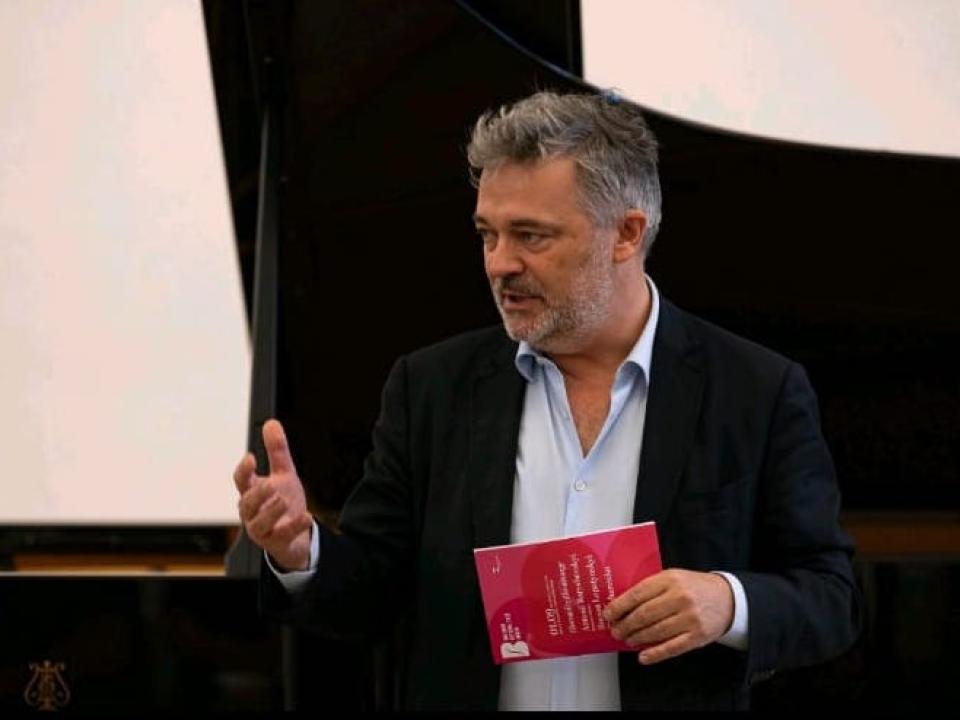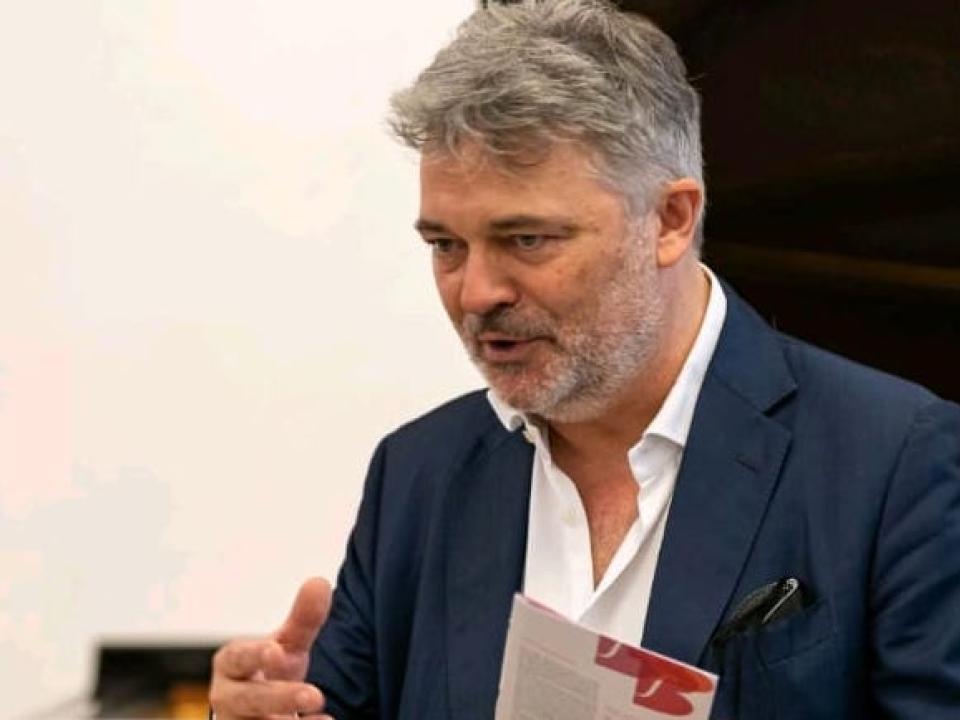Making the Case for Denationalisation

Artistic Planetarism instead of Propagandistic Nationalism: An interview with Peter Paul Kainrath
Peter Paul Kainrath is Artistic Director of the Ferrucio Busoni Intl. Piano Competition and President of the World Federation of International Music Competitions
As one of the first competitions in the world, the Busoni intl. Piano Competition in Bolzano gave up mentioning nationalities. Why?
Peter Paul Kainrath: Nowadays, artists are citizens of the world. For example, why should a Korean musician, holding an American passport, living in Germany, be called a Korean in an Italian competition? Because of their name? Their passport? Their place of residence? Recently, there have been many winners from Canada. Their parents are Chinese and they have a Chinese name, but they compete as Canadians, even if they live in Europe. There is just no logic behind. Putting a little flag behind a name or playing a national anthem does not say anything about a person’s character, it only invites prejudice.
What role did the war in Ukraine play in this?
Like several other competitions, changes towards denationalisation, as we call it, were made before 2022. But the war has certainly shown how important it was - and for many institutions still is- to find ways to avoid discrimination and prejudice because of someone’s nationality.
I prefer to think of myself as cosmopolitan. I was born in Latvia, which was part of the Soviet Union at the time, and I was educated in Russia. I then repatriated to Israel in 1972. I say "repatriated" instead of "emigrated" because they never refer to us as "immigrants" in Israel. We are repatriates. Israel sees us as merely coming back home, even if it took 2000 years. Anyway, I repatriated to Israel and I now live in Brussels. I play an Italian cello. I use mostly French bows, though lately I've been trying out some modern German ones. I use German and Austrian strings. I drive a Japanese car. I have an Indian necklace and a Swiss watch. My daughter was born in Paris, my older son in Brussels, and my little one in Italy. I guess I'm a citizen of the world!
Mischa Maisky
__________
In your publicity, is nationality not mentioned at all? What information do you provide instead?
There are different ways to do this. Some competitions, like i.e. the Queen Elisabeth, only mention a name. Somewhere further down in their biography their nationality or birthplace may still be mentioned. At the Busoni, we mention cities rather than countries, and not just one: artists are shown with their city of birth, the city where they studied, and their place of residence.
Is there a guideline given by the World Federation?
The World Federation has discussed the subject extensively and will likely take a decision on a new guideline later this year. And just this month, we have started a 6-month pilot project: nationalities are not mentioned anymore in any of our communications. It may take a while to get used to it, but we believe it is the right thing to do.
The World Federation is actively supporting a Ukrainian competition (The Horowitz Competition in Kyiv) by hosting this competition in Switzerland. Is it possible for Russian citizens to take part in this competition? Would this not cause conflicts of interest?
We encourage everyone from around the globe to take part in this competition. Our statutes clearly dictate that we must not discriminate against anyone because of their nationality. We have a very international jury which will guarantee a fair treatment of every single candidate. The competition does not have a political agenda and political statements of any kind will not be tolerated.
Is it possible to play Russian repertoire?
Yes. In several rounds, competitors can choose their repertoire freely.
©WFIMC 2023





